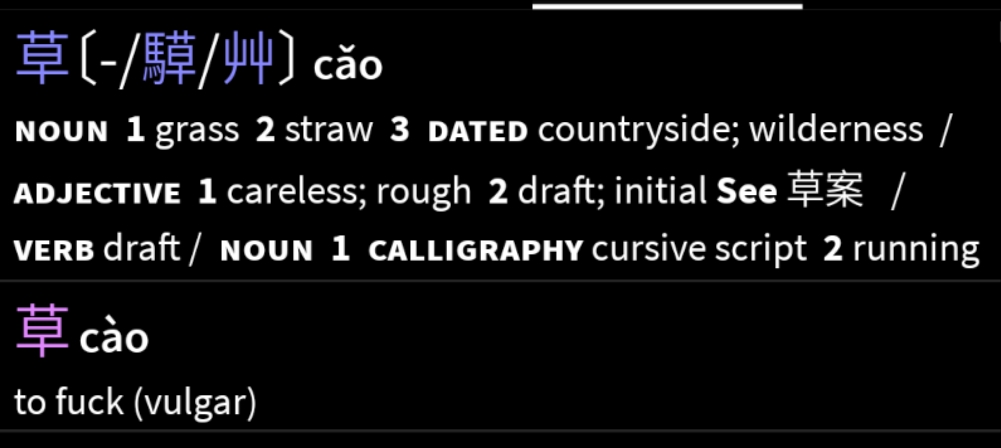Ah, no, this is some Internet slang, and oddly enough it comes from the first meaning. AFAIK, the second one doesn’t exist in Japanese.
Basically, “hahaha” in Katakana is written as ハハハ. If you line up enough ハハ’s, it will look like a series of w’s. In chats, they use w (from 笑い、warai) to denote laughter. If you line up enough wwww’s, it looks like grass. That’s how 草 ended up meaning LOL.
Oh, apparently you’re right! I just made a quick search. I was speaking based on what a Japanese friend had told me long ago, but maybe he had misunderstood it too.
I don’t understand Japanese but here are the meanings in Chinese. My guess is the second one used much more in daily written language
Ah, no, this is some Internet slang, and oddly enough it comes from the first meaning. AFAIK, the second one doesn’t exist in Japanese.
Basically, “hahaha” in Katakana is written as ハハハ. If you line up enough ハハ’s, it will look like a series of w’s.In chats, they use w (from 笑い、warai) to denote laughter. If you line up enough wwww’s, it looks like grass. That’s how 草 ended up meaning LOL.Oh I had heard that w came from 笑い but yeah, it’s 草 because it looks like grass
Oh, apparently you’re right! I just made a quick search. I was speaking based on what a Japanese friend had told me long ago, but maybe he had misunderstood it too.
Is that why Aqua in Konosuba says “kusukusukusu” when she laughs? Is it because “kusukusukusu” sounds like “kusakusakusa”? (「くさくさくさくさ」 or 「草草草」)
No, くすくす is onomatopoeia for giggling. https://jisho.org/word/くすくす